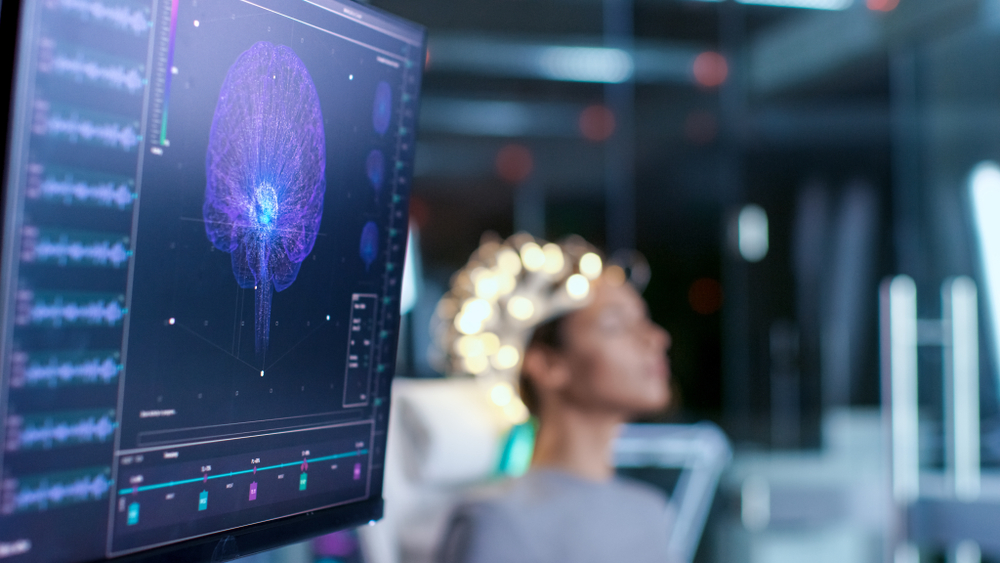- Researchers have identified a genetic mutation shared by people who need less sleep to feel rested.
- These findings could someday be used to develop drugs or therapies that help people get better sleep.
- Poor sleep is associated with a host of issues, so anything that helps people get better sleep will lead to better health outcomes.
Sleep is a universal experience. But even though we spend about a third of our lives sleeping, the science of why an individual requires more or less sleep isn’t thoroughly understood.
Most people understand how much sleep they need to feel well rested, along with the hours that work best for bedtime. But the specific reasons for these tendencies are somewhat mysterious.
Researchers at the University of California, San Francisco (UCSF) are unravelling some of these mysteries — particularly the role genes play in how much a person sleeps.
Their study was published this week in the journal Neuron.
Researchers looked at a family with a genomic mutation that ensured they felt well rested even though they slept well under 8 hours a night.
Ying-Hui Fu, PhD, a geneticist at UCSF and one of the paper’s two senior authors, first identified this mutation in natural short sleepers.
“We are at a stage where we’re trying to put together a puzzle and find the first pieces to lay down and build a picture,” Fu told Healthline. “It’s very exciting, because this helps us understand how our sleep is regulated.”
How do genetics factor in?
Before delving into the research, it’s important to understand the two functions that go into sleep.
The first, circadian function, is relatively well understood.
Circadian rhythms are essentially the body’s internal clock. It determines what times of day the body feels more alert as well as the times of day the body wants sleep.
The UCSF study deals with the second system, homeostatic drive.
That functions as an internal timer or counter. In short, the longer someone is awake, the higher the pressure to get some sleep.
“The homeostatic drive has a lot of variability,” explained Dr. Jesse Mindel, a neurologist at Ohio State University Wexner Medical Center who specializes in sleep medicine.
“You’ll hear people say they need to get 8 hours of sleep, but the reality is that there’s actually a pretty wide amount of sleep that most people would say that they need to feel rested,” Mindel told Healthline.
Circadian rhythms and homeostatic drive work in concert to affect sleep patterns, but homeostatic drive still isn’t well understood.
To learn more, UCSF researchers built on Fu’s earlier findings and studied a family with a mutated form of the gene ADRB1.
“These individuals are really quite interesting,” Dr. Louis Ptáček, a neurologist at UCSF and the paper’s other senior author, told Healthline. “They sleep 4 to 6 hours per night and they feel great when they wake up. They sleep a lot less than the average person does during their lifetimes.”
This genetic variant that causes people to be natural short sleepers is a receptor for a compound called adenosine.
Adenosine receptors are one of the targets that caffeine acts on and are also involved in other biological factors.
“When we mapped and cloned this gene, it was quite exciting, because this was the first direct proof that this gene and this receptor are directly involved in sleep homeostasis, or sleep regulation,” explained Ptáček.
Where does it lead?
Mindel says the research opens up a number of intriguing theoretical possibilities.
“The longer people stay awake, it affects their cognitive function, decision-making, their emotions, and their behaviors,” he said. “So if you could affect the homeostatic drive, then you may not need as much sleep as you do currently, which is a very powerful theoretical possibility to think about.”
Ptáček acknowledges that more research will be required to better understand these connections. But he says that anything to help people sleep better is beneficial from a public health standpoint.
“We know that chronic sleep deprivation contributes to increased risk for many diseases: cancer of many sorts, autoimmune disease, psychiatric disease, neurodegeneration, and so on,” he said.
“If we could develop compounds that help people to sleep better, and to sleep more efficiently, we believe that it could have profound consequences for improving human health in general — not in a disease-specific way, but through the idea of better health through better sleep,” Ptáček said.
Night owls take note
“Whether you tend to be a morning lark or a night owl, a short sleeper or a long sleeper, there’s a lot of genetic contributions to these traits,” Ptáček said.
Because we have no say in the genetics we’re born with, Ptáček says he and his colleagues promote the idea that people should be open to recognizing these biological differences in a nonjudgmental way.
“There’s a lot to learn from people with different sleep patterns. There are people who require 10 hours a night to feel really well rested and to function at an optimal level. That’s not to say that there’s not a lot of lazy people out there, too, who wallow around,” Ptáček said.
“But part of what we require sleepwise is genetically determined. We can’t deny that each of us is different in this regard, and we need to respect that,” he said.
This article was originally published on Healthline.
Follow us here and subscribe here for all the latest news on how you can keep Thriving.
Stay up to date or catch-up on all our podcasts with Arianna Huffington here.


